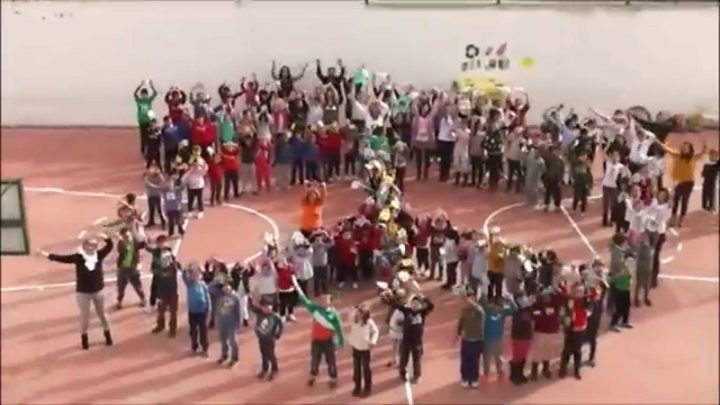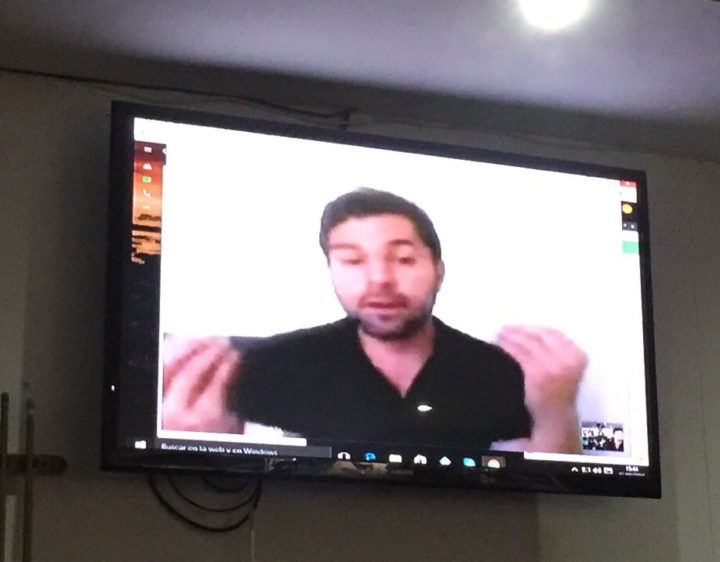
Peace Sign to support the Colombian Peace process, Burgess Park, London
The Colombian community in London met on 18/9/16 to reaffirm its commitment to the peace process and for a video link with Colombia to receive information from Taylor Valbuena, Adviser to the Office of the High Commissioner for Peace.
He described different Initiatives in pedagogy for peace that followed the first conversations between the Government and the Farc. In order to end the conflict some key points had been seen as essential to deliver a good outcome:
- Financial support to end the conflict: the US and the EU are providing part of the funding that guarantees the agreement.
- Disarmament of guerrillas: will be controlled by the state. There is a well established process. But it remains a big challenge. There is a mechanism of international participation to oversee disarmament in tandem with monitoring of possible human rights violations.
- Social reintegration: Access to political participation to enter democracy without weapons
- Victims’ reparation: justice based on truth and return of emigrants.
- A strong state that can guarantee reparation and protection.
- Territorial projects to recover communities, accompanied production: 7 million hectares identified to facilitate access to land for family units. Commercialisation of produce.
- An integral system of justice to neutralise criminal actions that may continue.
- A national plan: Public services. Social infrastructure, health, education
- National participation to agree on economic and other models.
- Victims abroad: Recognition of victims that had to leave. Refugees. Exiles. Returning with guarantees of security.
- Tribunals in charge of responsibilities and amnesties. Sentence for those who recognise responsibility: Truth and Reparation 5-8 years. Or Contradicting trial. Proofs will be presented. Imprisonment for 20 years in the worst cases and depending on accepting responsibility.
No all combatant groups are involved in the peace process, e.g., the ELN. A future agreement may be possible.
There were major challenges 4 years ago, lots of difficulties and crises. Today it is moving forward. A lot of work remains ahead in the shared regions where it will be implemented. The idea is to start with the territories most affected by the conflict.
During Q&A many people expressed doubts about future security (“Can this agreement protect people?”- There are serious concerns as many social leaders are being assassinated right now) and the situation of the Paramilitary, who are not involved in the Peace Process and/or any disarmament accords. It is generally seen that in the Referendum on October 2nd such forces will oppose the Peace Agreement but the Yes position is likely to win all the same.
The achievements of the last year can be clearly seen in relation to our previous Pressenza report of last year’s conference at the London School of Economics. At the time there were a number of veterans of the Irish Peace Process present who stressed the difficulties to effect reconciliation between communities affected by long running conflicts. There are many strategies to promote Reconciliation and Pressenza is committed to publish links to such tools.






